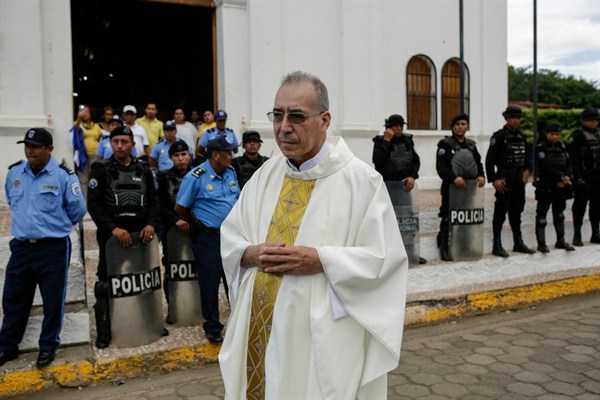A string of recent attacks on churches in Nicaragua, where anti-government protesters have held hunger strikes to demand the release of political prisoners, shows how President Daniel Ortega continues to violently suppress dissent, more than a year after putting down a popular uprising. Catholic churches and cathedrals have become new sites of protest for Nicaraguans still pushing for their political rights despite a government crackdown that has included outlawing public demonstrations.
On Nov. 18, an armed mob of pro-government supporters stormed the main cathedral in Managua, the capital, where seven mothers of political prisoners were waging a hunger strike to protest their detention. There are as many as 150 political prisoners in custody in Nicaragua, according to opposition activists, though Ortega’s government denies holding any. Earlier this year, the government said it released all the prisoners who had been detained during last year’s protests. After forcing its way into the cathedral, the mob scuffled with a priest and nun and committed “acts of desecration,” according to the archdiocese of Managua. The next day, the hunger strikers evacuated the cathedral “for reasons of security,” as one of them, Dulce Briceno, said in a video posted online.
Days later in Masaya, Nicaragua’s third-largest city, another pro-government mob ambushed the San Juan Bautista church, assaulting churchgoers and altar boys, as parishioners were preparing to make a pilgrimage in support of hunger strikers in Masaya’s cathedral. Opposition activists had been arrested in Masaya the previous week for trying to assist a different group of hunger strikers at the city’s San Miguel church, which had been surrounded by police and had its electricity and water cut off. The activists were accused of transporting weapons, a charge that carries a minimum punishment of five years imprisonment, though they claim they were simply trying to take water to the hunger strikers.

